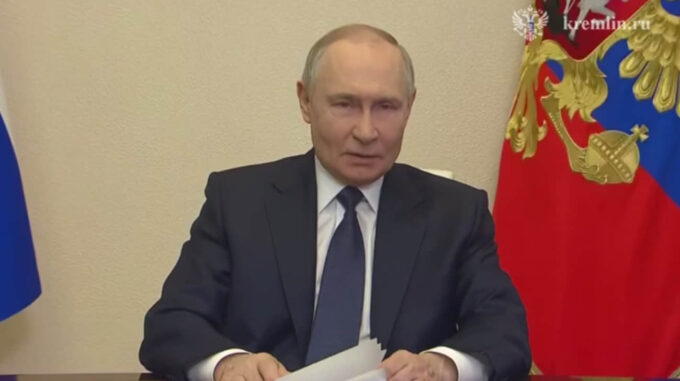In the Kremlin — silence and a solemn atmosphere: Putin received a report on the completion of the “operation to liberate” Kursk

On April 26, a long-anticipated moment took place in the Kremlin, which many observed with particular tension. According to information received from high-ranking sources within the Russian authorities, President Vladimir Putin personally received a report about the conclusion of a large-scale operation in northeastern Ukraine, specifically in the Kursk region. Officially, the last settlement — Gornyak — was "liberated from Ukrainian military forces," and this event is associated with the completion of Russia's so-called special "operation" in that area. Sources report that during a meeting with the Chief of the General Staff of the Russian Armed Forces, Valery Gerasimov, President Putin received a briefing claiming that the situation in the Kursk region is now under complete control. Kremlin spokesperson Dmitry Peskov commented on the situation, stating that Gerasimov informed the head of state about the "completion of the operation to liberate the Kursk region from Ukrainian neo-Nazi formations." The Kremlin's official rhetoric leaves open the question of who exactly is considered a "neo-Nazi" in this territory. However, media outlets and analytical circles continue lively discussions about whether the Russian leadership is truly attempting to frame this operation as a complete victory, aiming to create the illusion of success both domestically and internationally. In his brief comment, Putin remarked: "The complete defeat of the enemy along the Kursk border area brings us closer to the defeat of the neo-Nazi regime." This wording aligns with Moscow's official narrative about the "completion of the special operation" and the fight against Ukrainian "Nazism," which is used to justify large-scale actions in the region. The unfolding developments do not leave military analysts indifferent. According to the Ukrainian General Staff, as of the morning of April 26, Ukrainian servicemen control significant parts of Russian territory, including areas in the Kursk region, casting doubt on the official version of a "full liberation." Ukrainian officials actively comment on these events, emphasizing that the situation remains highly complex and that the Ukrainian Armed Forces continue to control several strategic areas, particularly in border regions. They highlight that Russian propaganda continues to create an illusion of success and obscures the real situation, which frequently appears more complicated and unpredictable. Meanwhile, experts note that such statements from the Kremlin are part of an information war. They emphasize that controlling the information space, including spreading positive messages about the "completion of operations," is an attempt by the Kremlin to shape the desired image for both the domestic audience and the international community. At the same time, the actual situation on the ground remains difficult and tense, and Ukraine does not cease its actions, casting doubt on Kremlin claims of a "full liberation" and ultimate success. Overall, these news developments once again demonstrate that the conflict in eastern Ukraine, especially in key border regions, is becoming increasingly complex and multifaceted, and informational warfare is carried out as actively as combat operations. We will continue monitoring the situation and promptly inform about new details.

